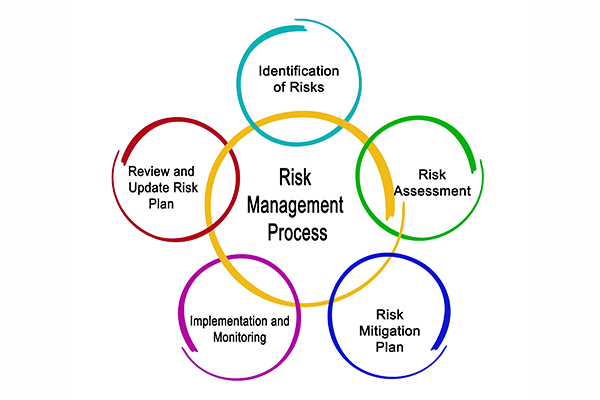
An introduction to risk management
Posted on 26th July 2021 by Phil Ainley
Fully understanding the risks your business faces allows you to manage them properly, prevent accidents and get the right level of insurance.
Risk management should be an integral part of your business strategy. Employees or third parties who are injured while working for you can have a significant impact on your business, with costly claims and lost working hours, as well as legal issues if you haven’t met statutory requirements, like fire safety assessments.
Additionally, damage to your property, equipment and stock might make it impossible for you to keep trading in the short term.
So it’s important to take a proactive approach to looking after your staff and your assets, with a solid risk management plan. It may well be worth using a specialist risk management company to help you make sure your business complies with legislation, reduce risk in your workplace and plan business continuity.
What does risk management cover?
Key to good risk management is spotting danger areas and preventing accidents before they happen. A risk management audit will cover your business health and safety practices, security, building and asset valuation, and business continuity planning.
- Health and safety: A workplace assessment will help you detect potential hazards and advise on how to meet current regulations, where you need to provide training, and what insurance you need to cover your liabilities.
- Security: Protecting your premises and your data is crucial to your ongoing business. So making sure you’re covered against theft or damage is really important.
- Building and asset valuation: Around 80% of businesses undervalue their commercial property, according to a 2012 Building Cost Information Service (BCIS) survey. Underinsuring equipment is also a common problem, with businesses not taking into account the true cost of replacing it on a ‘new for old’ basis. An audit will check the risk, rating and premium for your business.
- Business continuity planning: An incident in your workplace could cause major problems to your business. By planning for emergencies and taking out business interruption insurance, you can minimise the impact.
Some of these areas may only require minor changes to bring them into line with best practice and legal obligations, while you might need to spend more time putting others right. But investing in making your business safe will give you the reassurance that you’re compliant and allow you to get adequate insurance, so you’re covered if things go wrong.
To find out how risk management can help you protect your business, call the Caunce O’Hara Insurance brokers Ltd Risk Manager on 0161 833 2100.
Related Articles:
A freelancers guide to insurance
Professional indemnity insurance
Useful Links

Professional Indemnity Insurance
Protects against claims of alleged negligence in your professional services, advice and designs.

Directors and Officers Insurance
Protects your assets in the event of a claim. You may be held personally responsible for your business action and will have unlimited personal liability.
